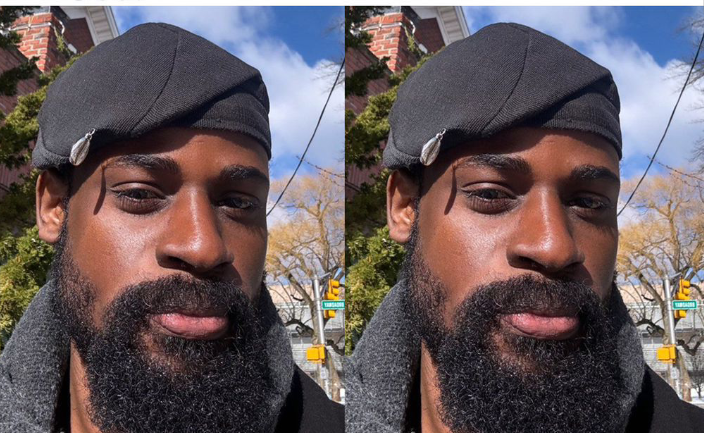
From Rejection to Recognition: Governor Umo Eno’s Candid Revelation on Growing Up with Albinism

In a world where beauty standards and social acceptance often come with heavy, unspoken rules, few public figures openly share the scars of their past. Akwa Ibom State Governor, Pastor Umo Eno, broke through that silence when he recently opened up about his personal struggles growing up with albinism. In a heartfelt post that has since gone viral, the governor revealed the deeply painful experiences of bullying, body shaming, and rejection that shaped his early years, while reflecting on how those same scars became the foundation of his empathy, leadership, and determination to honour those living with albinism today.
The revelation, delivered with the raw honesty that many rarely expect from politicians, sent shockwaves across Nigeria’s social media space. Governor Eno’s words were both sobering and inspiring, painting a vivid picture of what it meant to grow up different in a society where appearance often dictates acceptance. “Growing up with albinism wasn’t easy,” he confessed. “I faced bullying, body shaming, and rejection. But today, by God’s grace, I stand proudly. That’s why whenever I see anyone with this skin condition, I make it a point to honour and recognise them.” Those words carried the weight of lived experience, echoing not just his story but that of thousands of Nigerians who silently battle the same stigma.
Albinism, a genetic condition resulting in a lack of melanin pigment in the skin, hair, and eyes, remains heavily misunderstood in many African societies. For children growing up with the condition, the physical differences often make them targets of mockery, ridicule, and isolation. In extreme cases, myths and dangerous superstitions surrounding albinism have led to discrimination and even violent attacks in some communities. Against that backdrop, the governor’s revelation offered both a painful reminder and a powerful symbol of resilience.
For many, it was hard to imagine that a man who now holds one of the highest political offices in Nigeria once endured taunts and rejection simply for the way he looked. Yet Umo Eno’s story is not uncommon. Children with albinism are often labelled with derogatory names, left out of social circles, and subjected to emotional wounds that last a lifetime. What made the governor’s account so striking was not just his acknowledgment of those experiences but his insistence on transforming them into a mission of recognition and support for others facing the same struggles.
The reaction to his post was immediate and widespread. Social media users, activists, and everyday Nigerians flooded the comments section with messages of solidarity, admiration, and shared pain. Many recounted their own journeys or those of loved ones living with albinism, thanking the governor for giving visibility to an issue often swept under the rug. For parents raising children with the condition, his words offered a glimmer of hope that their children could rise above society’s prejudice and achieve greatness, just as Umo Eno has.
This revelation also sparked a broader conversation about the challenges people with albinism face in Nigeria. Beyond the emotional toll of bullying and body shaming, individuals with the condition often struggle with serious health challenges, particularly vision problems and heightened vulnerability to sun-related skin conditions. In many communities, lack of awareness, limited access to healthcare, and cultural superstitions compound these struggles. Governor Eno’s statement, therefore, served not just as a personal confession but as a rallying cry for greater awareness, acceptance, and institutional support for people living with albinism.
His decision to openly share his struggles is especially significant in the political space, where vulnerability is often perceived as weakness. Nigerian politics, like much of the world, has long been dominated by figures who present an image of invulnerability and strength. By contrast, Eno’s admission humanized him, showing a side of leadership that many citizens yearn for—one rooted in lived experience, compassion, and relatability. By speaking about his scars, he demonstrated a willingness to bridge the gap between authority and humanity.
Observers note that the governor’s empathy for people living with albinism is not new. Over the years, Umo Eno has been known for philanthropic gestures and recognition of marginalized groups. However, this latest revelation provided the backstory that explained the passion behind his actions. His words made it clear that his advocacy is not rooted in politics or optics but in personal history and emotional truth. “Whenever I see anyone with this skin condition, I make it a point to honour and recognise them,” he said. That simple statement reflected years of personal pain transformed into purposeful compassion.
For many in Akwa Ibom and beyond, this moment was about more than the governor’s personal journey—it was a call to dismantle stigma and reframe narratives around albinism. In a country where differences are often used as grounds for exclusion, his openness was a reminder that diversity should be celebrated, not condemned. It was also a challenge to institutions, communities, and individuals to do more in creating environments where those living with albinism feel safe, respected, and empowered to thrive.
Stories like that of Umo Eno also highlight the importance of representation. For young Nigerians with albinism, seeing a governor openly speak about their shared reality is nothing short of revolutionary. Representation does not just inspire; it validates. It tells them that their lives are not defined by stigma or limitations but by resilience and possibility. In this sense, Eno’s testimony was more than a personal reflection—it was a public service, a gift of visibility to an often invisible group.
As the news continues to ripple across the nation, the broader impact of his revelation is yet to be fully measured. Will it lead to new policies supporting people with albinism in Akwa Ibom? Will it encourage other public figures to speak candidly about their own struggles with difference, disability, or stigma? At the very least, it has already achieved one thing: it has forced a conversation many were reluctant to have, a conversation about prejudice, resilience, and the transformative power of empathy.
Governor Umo Eno’s journey from a bullied child to a celebrated leader stands as a testament to the human spirit’s ability to overcome rejection and turn pain into purpose. It is a story that resonates far beyond politics or personal identity—it is a story about survival, grace, and the responsibility that comes with triumph. His words will continue to echo, not just in the corridors of power but in the hearts of those who have long felt unseen.
In speaking his truth, the governor reminded Nigerians of a simple but profound fact: our scars do not diminish us; they prepare us to shine brighter. And in a society where difference is too often met with cruelty, his story is a powerful reminder that dignity, acceptance, and recognition are not privileges—they are rights that everyone deserves.


